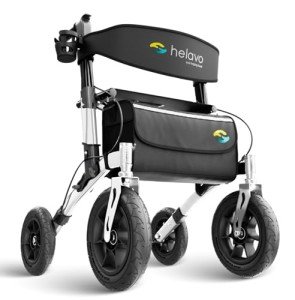The Importance of Elderly Walkers: Enhancing Mobility and Independence
As people age, their bodies go through different modifications that might affect their mobility. Conditions such as arthritis, osteoporosis, and other chronic disorders can make browsing the environment challenging for the elderly. Luckily, assistive gadgets like walkers can significantly improve mobility, ensuring that seniors preserve their self-reliance and lifestyle. This blog site post will look into the various types of walkers available, their advantages, and important factors to consider when choosing the best one.
Understanding the Different Types of Walkers
A walker can provide the required support for seniors having problem with mobility. Nevertheless, not all walkers are produced equivalent. Here's a comprehensive breakdown of the various types of walkers available.
| Kind of Walker | Description | Best For |
|---|---|---|
| Requirement Walker | A lightweight frame with four legs offering basic support. | People needing assistance while walking. |
| Two-Wheeled Walker | A walker with two wheels at the front enabling easier movement. | Users who require more mobile support for faster walking. |
| Four-Wheeled Walker | A rollator with four wheels, brakes, and a seat. | Active seniors who need more mobility and a place to rest. |
| Knee Walker | A specialized walker with a padded platform for resting the knee. | People recuperating from foot or ankle injuries. |
| Folding Walker | A walker that can be collapsed for easy storage and transportation. | Seniors needing benefit when taking a trip. |
Table 1: Types of Walkers
Advantages of Using a Walker
Walkers offer a wide variety of benefits for seniors, consisting of:
- Enhanced Stability: Walkers give extra support to the user, helping to cultivate confidence while walking.
- Enhanced Balance: With a walker, seniors can rearrange their weight, improving balance and lowering the threat of falls.
- Increased Independence: Users can move their homes and communities more conveniently, permitting them to participate in social activities.
- Lowered Pain: Walkers can reduce the influence on joints and muscles, making movement less agonizing for conditions like arthritis.
- Versatile Usage: Walkers appropriate for numerous environments, whether indoors, outdoors, or on irregular surfaces.
Table 2: Benefits of Using a Walker
Selecting the Right Walker
Picking the right walker is important to maximizing mobility and guaranteeing convenience. Here are some factors to consider:
- Weight Capacity: Ensure that the walker can support the user's weight. Many walkers have actually a specified weight limitation.
- Height Adjustment: Adjustable height features guarantee that the walker is set to the appropriate level for the user's height, promoting excellent posture and convenience.
- Wheels vs. No Wheels: Depending on the user's abilities and environment, a walker with wheels might be more advantageous for movement, while a non-wheeled walker may offer more stability.
- Additional Features: Some walkers include built-in seats, storage, or devices (like cup holders) that can boost user experience.
Table 3: Considerations for Choosing a Walker
Maintenance of Walkers
Appropriate upkeep of walkers is vital for ensuring safety and durability. Here are some fundamental upkeep pointers:
- Regular Inspections: Check for cracks, rust, or loose screws and make sure that the rubber tips on the legs are undamaged.
- Wheel Maintenance: Ensure that wheels move freely and are not stuck; oil them if essential.
- Modifications: Periodically check if the height and settings remain appropriate, changing them as required to keep user convenience.
Table 4: Maintenance Tips for Walkers
Frequently Asked Questions About Elderly Walkers
1. What is the typical expense of an elderly walker?
The rates of walkers can range considerably based upon the type and features. Standard walkers may cost between ₤ 50-₤ 100, while specialized walkers or rollators can vary from ₤ 100 to ₤ 300.
2. Are walkers covered by insurance?
Many insurance strategies, including Medicare, cover the cost of walkers, provided they are considered medically required. It's important to check with your insurance coverage supplier for specifics.
3. How do I know when my liked one needs a walker?
Indications may consist of problem walking individually, regular falls or near-falls, and increased fatigue while performing day-to-day activities. A healthcare professional can supply a comprehensive evaluation.
4. Can walkers be utilized outside?
Yes, lots of walkers can be utilized both indoors and outdoors. If preparing to utilize a walker outdoors, consider a design with wheels or wider legs for stability on different surfaces.
5. How long can a walker last?
With proper maintenance, a great quality walker can last for a number of years, though wear and tear will differ depending upon use frequency and conditions.
Walkers are important tools that can restore mobility and self-reliance for seniors while ensuring their safety. As individuals live longer and lead active way of lives, investing in appropriate assistive devices like walkers is more vital than ever. Comprehending www.mymobilityscooters.uk of walkers available, their benefits, and how to pick the right one can empower users and their caretakers to make informed choices. Ultimately, the ideal walker can lead to better quality of life, enabling aging individuals to remain active individuals in their communities.

